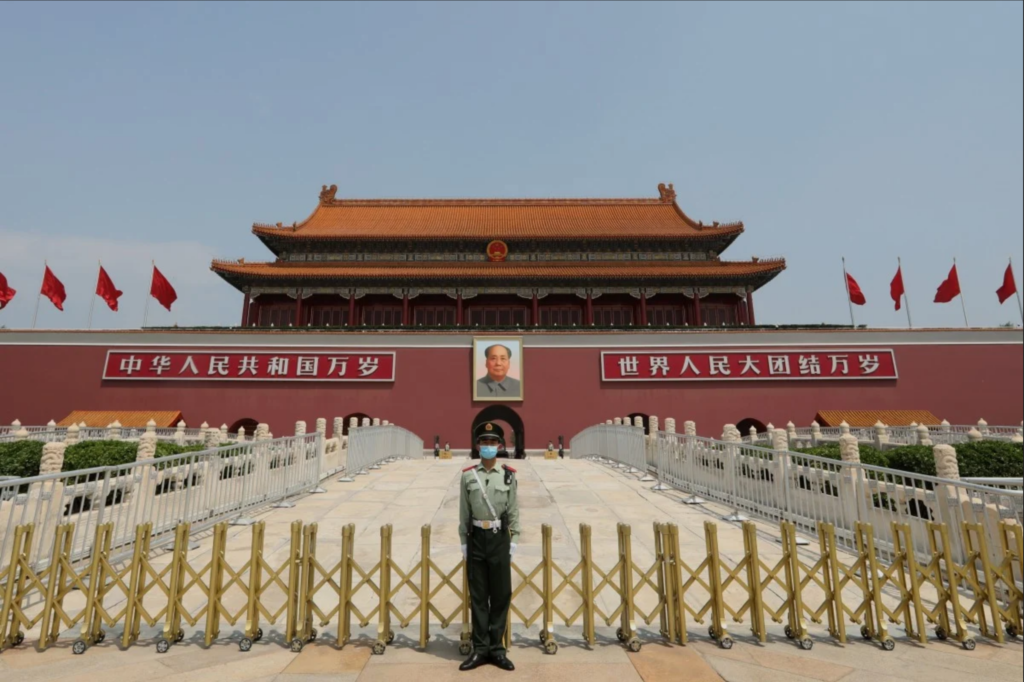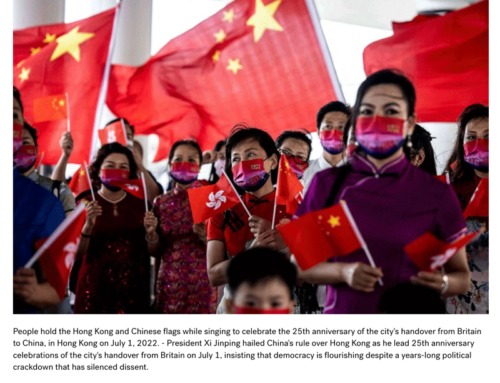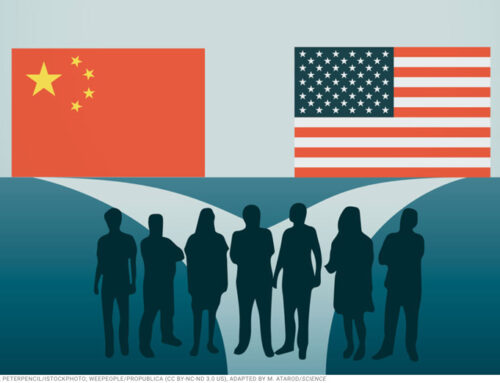- China’s leaders are facing challenges on multiple fronts – from the economy to global criticism of their handling of Covid-19
- Beijing believes that another summer of protests in Hong Kong and what it perceives as hostile US activities in the city cannot be tolerated
South China Morning Post (SCMP)
30 May 2020 06:30 AM
by Dr David Zweig
Many people believe that Beijing’s decision this week to introduce national security legislation for Hong Kong reflects a confident China that feels it has weathered Covid-19 and that, given the West’s distraction with its own virus crisis, now is the best time to act. I don’t see it that way.
Over the past few months, the Western media have reported on the bevy of dangers facing China. These are the same dangers that those who say China is acting out of a sense of confidence, even hubris, trumpet regularly as signs that the country is in trouble.
What are they? The economy is faltering, with 2019 marking the first major decline in gross domestic product in four decades, and many say it may not recover quickly. The virus may not have been eradicated – China just locked down 100 million people in the Northeast. Unemployment is rising – the National Bureau of Statistics reported that youth unemployment was 13.8 per cent in April.
There is a big backlash against China for the way it handled the virus when it began to spread. Even in China, some have called for the central government to publicly explain the official response to the virus in the first 20 days after it was detected in late December. Also, supply chains may be moving their end point out of China, taking more jobs with them.
On May 22, in an unprecedented move, Premier Li Keqiang did not set a target for this year’s GDP growth in his work report to the National People’s Congress. Does that reflect confidence in the near future?
Many observers highlight the problems in China’s foreign policy as well. President Xi Jinping’s pet foreign policy project, the Belt and Road Initiative, has run into trouble, China’s Africa policy is in shambles, and relations with the European Union are at a nadir. Tsai Ing-wen, seen by Beijing as a separatist, was just inaugurated as president of Taiwan for a second term.
Perhaps most threatening in the eyes of China’s leaders, the United States is ratcheting up its anti-China rhetoric and intensifying its military activity in the South China Sea, its State Department is on the verge of sanctioning Chinese leaders and the Chinese state in relation to the imposition of the national security law in Hong Kong, the Trump administration is strengthening ties with Taiwan, and ethnic Chinese in the US are under surveillance, accused of technology theft and spying.
In other words, China’s “unstoppable” rise and Xi’s “Chinese dream” are in deep trouble.And of course, according to Beijing, Hong Kong society has been out of control for a year. This is not due, in Beijing’s eyes, to its own, and the Hong Kong government’s, tragic mismanagement of the introduction of an amendment to Hong Kong’s extradition law.
Instead, Beijing attributes Hong Kong’s instability to separatists and foreign subversion, both of which are out to destroy China’s sovereignty over the city. And with the summer coming and the virus waning in Hong Kong, the city sits on the very edge of slipping into another spell of massive and bloody protests.
The China Institutes for Contemporary International Relations, affiliated with the Ministry of State Security, which is the heart of Chinese paranoia, recently published a report saying that global anti-China sentiment is at its highest since June 4, 1989 and that the country needs to be prepared, in the worst-case, for war.
Am I an apologist, trying to justify China’s actions? No. Most of China’s problems, particularly in Hong Kong, are of its own making. These include a stalling of reform, too much power centralised in the hands of one hard-line, doctrinaire individual, and an overextended and bullying foreign policy, including building islands in the South China Sea.
Instead, I am presenting an alternative explanation to that which sees a powerful state using the world’s difficulties as an opportunity to quiet a pesky and petulant child.How else can we explain the decision to introduce a national security law that may reignite the smouldering coals of protest in Hong Kong and deeply harm China’s global stature?
China understands most of the risks in this policy. But it simply feels that another summer of protests – which could have a demonstration effect on disgruntled workers and youth on the mainland – and what it sees as hostile American activities to destabilise Hong Kong, so intensify the threats to national security that it is willing to risk undermining Hong Kong’s role in China’s “national rejuvenation”.
Finally, if I am correct, and China has acted out of fear and anxiety, not arrogance, don’t expect it to back down, despite what the world says or does – the risks for Beijing are just too highstrong>David Zweig is director of Transnational China Consulting Limited and Professor Emeritus of The Hong Kong University of Science and Technology






Leave A Comment